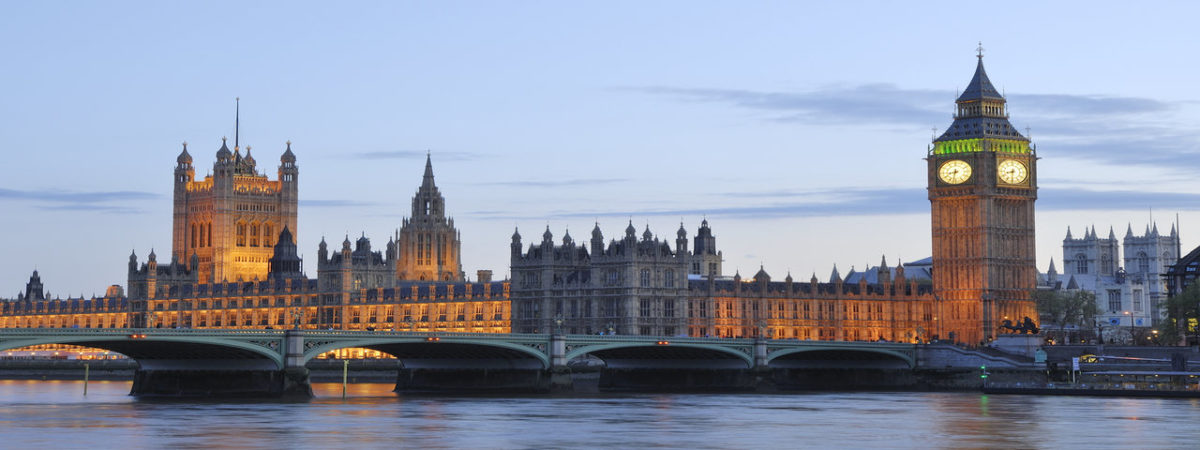What the market can provide
SUGGESTED



Friends of capitalism do not argue that the state has almost no useful role to play and, in setting up such a straw man, he seems to be dividing friends instead of attacking enemies. Politically, this is an extremely dangerous tactic, as it contributes to the misapprehensions that are widely held about the nature of capitalism. Furthermore, in arguing that capitalism does not provide ‘non-market redistribution’ and other socially useful functions he is defining free-market capitalism too narrowly. If Tim wishes to define this framework as revolving only around the private means of production and material exchange then nobody would deny that capitalism should be supplemented by other social activity – as, indeed, it is in all free societies.
In this article we lay out our position on the issues Tim raises and reference where we have consistently discussed these topics. There will be other, different, free-market positions which would give a different emphasis in responding to the various points. However, the broad position is that it’s false to claim supporters of a market economy do not believe in a state at all or in non-market institutions. Instead, they believe that the state as currently constituted is too big and doing the wrong things, often crowding out non-market institutions (including the family)
1. Tim rightly highlights that successful markets are underpinned by individuals who have vigorous virtues. A market economy can nurture certain virtues (good service, trustworthiness, good timekeeping, and so on) but the outcome of a free economy also depends on the exercise of virtues that are not always nurtured by markets. Our argument is not that the virtues are not needed but that, if the virtues are not practised widely in society, regulation or government intervention is not an effective substitute. This was an argument stated strongly by the English and Welsh Catholic Bishops at the last election. We would also point out that the growth of the state has undermined both self-sufficiency and the practice of the virtues in many areas of economic life – perhaps finance being the most obvious. In fact, it is usually only free-market advocates of capitalism who consistently object to new government interventions in areas such as childcare, free school meals etc., which seek to take more responsibility away from individuals, civil society and the family.
2. When it comes to public order, it might be true that there are a few anarchists in the ranks of capitalist supporters, and perhaps Tim has them in his sights. However, that is a narrow target. Capitalists down the ages have been prominent in arguing that the state should help provide public order, the rule of law, and so on. They have written much about it. The state may not be very good at providing for public order at times, and private initiatives are often important too, but it’s unclear who Tim believes opposes a role for the state in this area.
3. When it comes to a minimum guaranteed safety net, it is sufficient to refer to Hayek and Friedman. In both The Constitution of Liberty (page 257) and Law, Legislation and Liberty (third book, page 55) Hayek talks about redistribution to ensure a minimum standard of living dependent upon the average income of the country. Friedman proposes in Capitalism and Freedom (chapter XII) a negative income tax (this is conceptually different from, but practically identical, to the Green Party’s proposed citizens’ income) and suggests that the floor should be determined by what the ‘community can afford’. Of course, it would be most helpful if state intervention did not raise the cost of housing and other goods beyond the reach of the poor in the first place. After all, Beveridge did not believe that it would be necessary for working people to have significant and permanent income supplements. That they do so is at least partly a consequence of state regulation of the housing market. But it’s wrong to argue those of a free-market persuasion are opposed to a safety net per se. Instead they point out that the UK’s unwieldy bureaucratic welfare state far exceeds a safety net for many, whilst failing many of those in genuine need.
4. When it comes to competition, Tim points to industries, such as airlines, where there is significant industry concentration. But the existence of large firms does not mean a lack of competition. The airline industry is fiercely competitive. And the large firms that dominate an industry change from generation to generation. Ten years ago, people were worried about the dominance of Tesco; now pension funds are worried about its decline. What matters is contestability. More generally, competition issues are complex and, not surprisingly, they divide supporters of capitalism. As Tim states, often it is government actions which create or entrench large firms through regulations and state favours.
5. We are with Tim entirely on the issue of non-market distribution. In fact, free-market capitalists are very keen on it – hence one reason they are in favour of low levels of taxation (so families and individuals can save and provide for themselves). Why imply otherwise? It is our enemies and successive governments (including, it has to be said, this government) that have promoted marketised childcare through subsidies, discrimination in the tax and benefits system against single earner families, and discrimination against family formation. We look forward to Tim joining us in making the arguments not just for reform around the edges but for an entirely non-discriminatory tax and benefits system which will help put the family back at the heart of welfare.
6. Tim’s story about infrastructure oscillates between arguing that the private sector would not produce infrastructure if left to its own devices, to suggesting that the state should provide it whilst noting that the state often doesn’t do so very well, to then finally arguing that the government should create the conditions where the private sector will invest in infrastructure. It is difficult to cut through this line of argument, but we would simply say that, if the state performs its proper functions effectively and provides a secure regime for the protection of property rights and good business conditions, the private sector can be a prolific provider of infrastructure and far more effective than the state. This is true, for example, of Victorian railways and of modern mobile phone and satellite infrastructure (including in Africa). It is interesting that Tim points to corporate short-termism encouraged by quarterly reporting. We agree and always disagreed with it being a statutory regulatory requirement. Blame should fall where blame is due. But given how long politicians have dithered over new UK airport capacity, how poor politicians are at picking winners, and the impact of the short political cycle, it’s not entirely clear why Tim trusts the state to think longer-term.
7. We agree that private enterprise can pollute. This is an area in which advocates of free-market capitalism have done huge amounts of work, winning several Nobel Prizes. Ronald Coase outlined how property rights could help overcome externality problems; Elinor Ostrom highlighted community based solutions to natural resource problems and Milton Friedman proposed a carbon tax. Numerous IEA publications over the last 50 years have advocated road pricing. Free-marketeers ‘get’ externalities. One of the reasons free-market capitalists often appear opposed to government actions in this area though is that rather than implement any of these elegant solutions, politicians have instead conspired to produce a raft of industrial policy, subsidies and regulations.
8. We agree very much with Tim on rent seeking or ‘equality in the democratic sphere’. Indeed, this is the main area of study of Fred Smith’s Competitive Enterprise Institute and numerous IEA authors over the last 40 years (this link is to a publication that has been translated all around the world). Rent seeking applies not just to businesses but to a whole range of organisations (charities, the education ‘blob’ and so on). It is only in the last five years that the left have caught up and have seen rent seeking as a problem. The crucial point here though is that the bigger is the state and the more government does, the easier rent seeking becomes. Once again, Tim and free market capitalists should be on the same page.
9. When it comes to alcohol, drugs etc, it is true that most societies will want them regulated. What we object to is taxes and regulation that go way beyond any reasonable estimate of the social cost of the activities. Much of the desire to regulate these activities at the moment is simply heavy-handed paternalism. It seems that free-market capitalists’ objections to the current huge regulatory state are mistaken by Tim for objections to the state having any role.
10. We also value national identity, a sense of respect for the nation, and so on. But, is it not the case that this will be better promoted if the state does a relatively small number of things that we can all agree are essential rather than a huge number of things about which there is wide disagreement? The bigger the state, the more there is to divide us.
So, we hope to join forces with Tim in his efforts. We also hope that Tim will come to appreciate that supporters of free-market capitalism have a sophisticated view of the world and of the importance of institutions outside the market. What we do not want, however, is the state taking over or controlling those non-market institutions.
This article was originally published on CapX.
1 thought on “What the market can provide”
Comments are closed.






Where goods and services are elastic in supply, the market benefits everyone. Where goods and services are inelastic in supply, the market only benefits the few. No where is it easier to see the malign effects of free market dogma than our dysfunctional property market. We should of course take Milton Friedman’s advice and de-capitalise the pure monopoly selling price of Land, with an ad valorem tax based on its rental value.